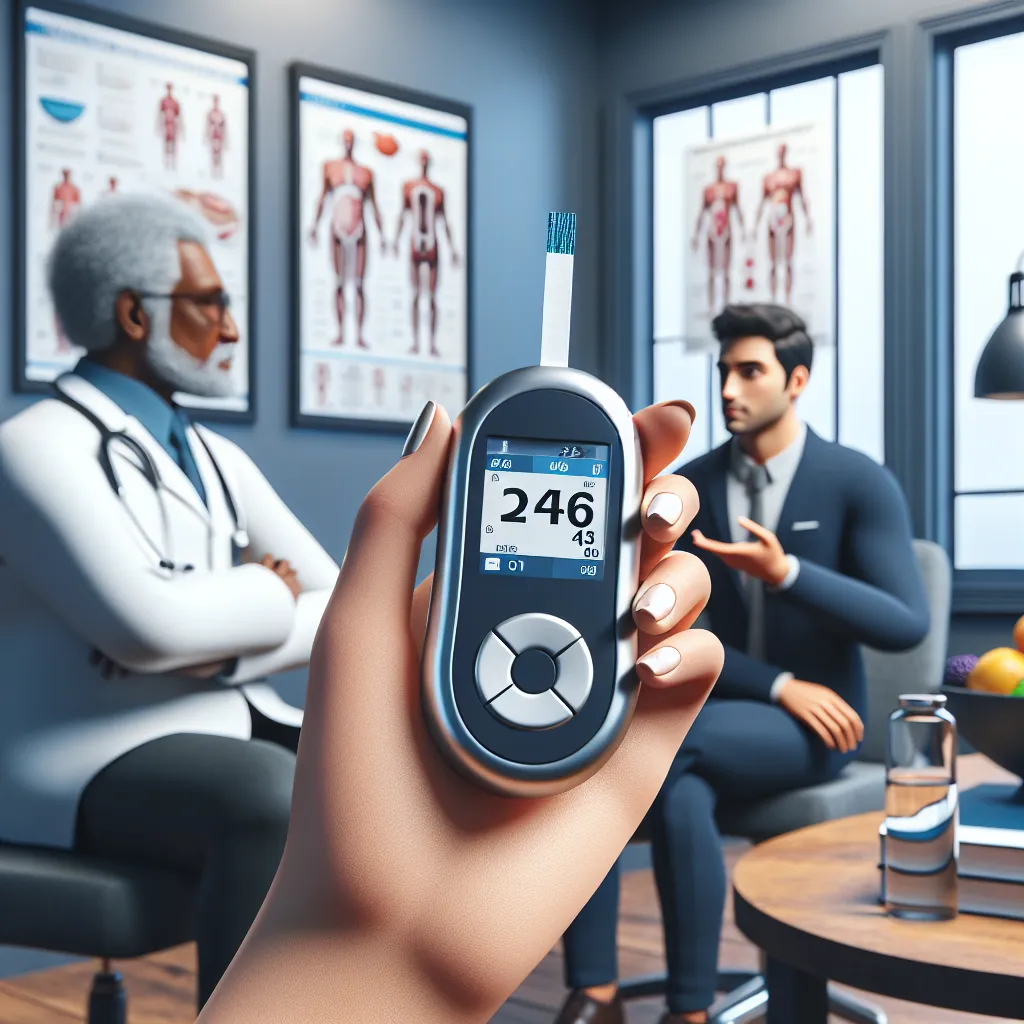Diabetic Sugar Monitor: A Vital Tool for Managing Diabetes
Diabetic Sugar Monitor: A Vital Tool for Managing Diabetes
Living with diabetes requires careful monitoring of blood sugar levels. Diabetic sugar monitors have become an essential tool for individuals managing this chronic condition. They provide accurate and real-time readings of blood glucose levels, enabling individuals to make informed decisions about their diet, physical activity, and medication. In this article, we will explore the importance of diabetic sugar monitors, their benefits, and how to choose the right one for your needs.
Understanding Diabetes
Diabetes is a metabolic disorder characterized by high blood sugar levels. It occurs when the body either does not produce enough insulin or cannot effectively use the insulin it produces. Insulin is a hormone responsible for regulating blood sugar levels. Without proper management, diabetes can lead to serious health complications such as heart disease, kidney failure, and nerve damage.
The Role of Diabetic Sugar Monitors
Diabetic sugar monitors, also known as glucose meters or blood glucose monitors, are compact electronic devices that measure the concentration of glucose (sugar) in the blood. They work by analyzing a small blood sample, typically obtained by pricking the finger with a lancet, and displaying the results on a digital screen. These monitors provide valuable information for individuals with diabetes, allowing them to assess their blood sugar levels and take appropriate actions to maintain them within a healthy range.
The Benefits of Diabetic Sugar Monitors
The regular use of diabetic sugar monitors offers several significant benefits:

-
Blood sugar control:
By regularly monitoring their blood sugar levels, individuals with diabetes can make necessary adjustments to their diet, exercise, and medication to keep their glucose levels in check. This helps prevent both short-term complications, like hypoglycemia or hyperglycemia, as well as long-term complications associated with poorly controlled diabetes. -
Insight into dietary choices:
Diabetic sugar monitors allow individuals to understand how different foods affect their blood sugar levels. This knowledge empowers them to make informed dietary choices, such as avoiding foods that cause significant glucose spikes. -
Improved medication management:
By tracking their blood sugar levels, individuals can assess the effectiveness of their diabetes medication. If their glucose levels remain consistently high or low, they can consult with their healthcare provider to adjust their medication regimen accordingly. -
Early detection of hypoglycemia:
Diabetic sugar monitors can quickly detect low blood sugar levels, also known as hypoglycemia. This allows individuals to take immediate action, such as consuming a fast-acting carbohydrate, to bring their blood sugar levels back to a safe range.
Choosing the Right Diabetic Sugar Monitor
When selecting a diabetic sugar monitor, it is essential to consider several factors:
-
Accuracy:
Ensure that the monitor provides accurate readings. Look for models that have been tested and approved by relevant regulatory authorities. -
Usability:
Consider the ease of use and user-friendliness of the device. Features such as large screens, backlit displays, and simple navigation can make a significant difference, especially for individuals with visual impairments or limited dexterity. -
Sample size:
Some monitors require smaller blood samples than others, which can be beneficial for individuals who are uncomfortable with larger pricks or have difficulty obtaining a sufficient blood sample. -
Data storage:
Check if the monitor has the capability to store readings. This can assist in tracking blood sugar trends over time and provide valuable data for healthcare professionals during routine check-ups. -
Connectivity:
Consider whether the monitor can connect to other devices, such as smartphones or computers, to sync and analyze data. This feature can simplify data management and allow for easy sharing with healthcare providers. -
Cost:
While cost is an important consideration, prioritize the quality and reliability of the monitor over price alone. It is an investment in your health and well-being.
In Conclusion
Diabetic sugar monitors are indispensable tools for individuals living with diabetes. They play a crucial role in maintaining blood sugar control, enabling individuals to make informed decisions about their lifestyle and medication. By regularly monitoring their blood glucose levels, individuals can proactively manage their diabetes and reduce the risk of complications. When choosing a diabetic sugar monitor, consider factors such as accuracy, usability, and data management capabilities. Remember, investing in a reliable and effective monitor is an investment in your health and overall quality of life.
